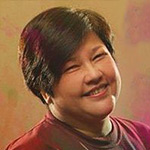
One of the misguided arguments for the Marcos burial at the Libingan ng mga Bayani is that people have to “move on” or forgive. A variation would be that those who oppose his burial must learn the spiritual gifts that forgiveness brings to the person and to our nation. Political pundits or social media warriors sometimes accompany these arguments with their own stories of forgiveness and peace.
This argument is such a common trope in these discussions. I am fearful that as the Supreme Court makes its deliberations about whether the government can proceed with its plans to bury Marcos as a hero, this may become persuasive.
I have no doubt that the personal stories are noteworthy, and as a psychologist who has worked with victims of violence and catastrophe, I cannot discount the beauty of personal stories of forgiveness or redemption. I am also not dismissive of pleas for leniency even for the greatest of sinners.
The morality of forgiving
But I need to caution against those who would forgive injustices of which they were not the victim. I find this psychologically unsound and morally dubious. It does not serve the interests of justice for individuals and society at large.
As someone who has counseled with the survivors of sexual abuse, illegal detention and torture since Martial Law, I can testify to the reality of the dictatorship’s cruelty and the heroism of the majority of its victims. This is a truth which the deniers of Martial Law and those pushing for his burial wish to deny.
But any open-minded person can merely view the many historical accounts available. They may go to the Bantayog ng Mga Bayani Museum or access the testimonies of those who petitioned the Supreme Court not to allow the burial.
And so when I hear accusations that such people “cannot move on” or are unforgiving and/or vindictive, I cannot but cringe. Perhaps the cruelty is unwitting but it is cruelty nonetheless. And when it is put in the guise of spirituality, it is even more deplorable. (READ: Ilocanos march to Manila to rally for Marcos burial)

Those of us who work in the rehabilitation of those who have experienced torture, rape, sexual harassment and other forms of severe violence often realize how important justice is for healing. I mean this both in an individual sense and also in a national sense. It is difficult to heal without justice if you have been raped and tortured. As a nation we will never heal from the Martial Law years and learn the lessons we need to move on, if we do not give the victims justice.
On the individual level, I know that my counselees are psychologically sound and fighting to heal when they seek justice. This is the psychological aspect of human rights. When our human rights are violated, it is by definition an assault on our dignity and personhood. Any ordinary person will seek to say to the offender, “you cannot do this to me. You must show remorse and recompense. You must assure me that you will not do this to another human being again.” In this sense, those who have no impulse to seek for justice worry more because they may be too broken rather than spiritually strong.
How the perpetrator and how others react to this search for justice defines who we are. If our goal is to pay our social and moral debt to those who were wronged, to those who our social systems have failed – then we cannot stand in the way of this call for justice. We must facilitate it if we can. We must understand and encourage the victims. We must work so that our society give them the justice they deserve. In this way, we facilitate their healing.
I will argue that the same principle applies to our nation. It is necessary before we forgive the Marcoses that a full accounting be made of their wrongs to the nation. The stolen money, the corruption of our social institutions and the human rights violations. When all this is heard we must see appropriate apologies, remorse, recompense and punishment. When this is done, I would be the first to ask that we accord the Marcoses human compassion. It is at this point when forgiveness can lead to national healing, reconciliation and peace.
Act of cruelty
This has not happened. And, as the reader may already have realized, what we should have done as a nation would not just have helped us heal collectively. It would have helped the healing of those who sacrificed and fought for our freedoms as well. I will add that other nations have done this for their own dark pasts. And it has led to greater social cohesion unity and peace.
It is in this light that those who ask that we forgive when there has been no remorse or recompense are being cruel. They are placing a further moral burden on those who are not guilty, on those who have sacrificed enough. The victim’s search for justice must be applauded instead of ignored and dismissed.
For these reasons, I find that anyone who would dictate on another how he or she should heal lacks humility and compassion.
I believe that our nation cannot heal because this government is asking us to forgive depredations which have not been accounted for or paid for. We cannot learn the lessons of the past, nor honor the sacrifice of our martyrs, by allowing the burial at this time. Instead it is reopening old wounds and causing divisions.
Burying Marcos in the Libingan ng mga Bayani is not an act of forgiveness or national greatness. It is an act of cruelty to those who have sacrificed much and a stain on our morality as a nation. – Rappler.com